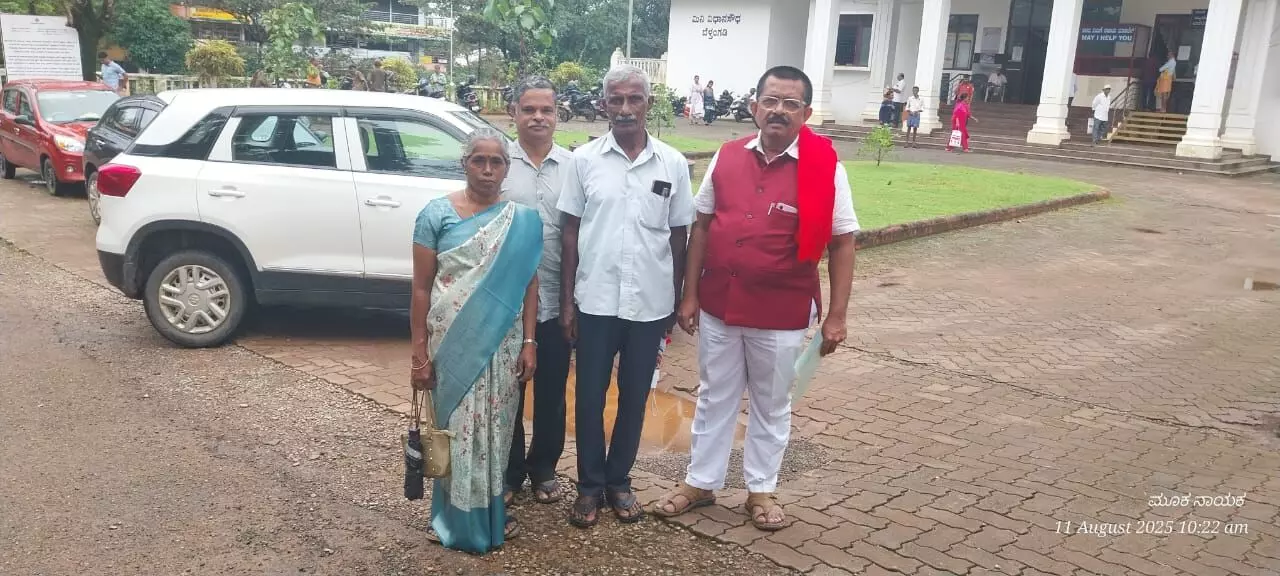The next launch of the Small Satellite Launch Vehicle (SSLV-D2) with the Earth Observation Satellite (EOS-07) and two other satellites as part of its payload is scheduled to occur on February 10 from the Sriharikota spaceport. Chennai is where the event will take place.
This Friday, the Indian Space Research Organisation (ISRO) has announced that the SSLV-D2 will be launched from the First Launch Pad shortly after 9:18 a.m.
A total mass of 334 kg, including EOS-07 satellite and two other accompanying satellites, is expected to be delivered by the SSLV-D2.
The satellite will be placed in a Circular Low Earth Orbit with an altitude of 450 km and an inclination of 37.2 Deg to the equator.
The SSLV is developed to be reasonably priced and suitable for industrial production and serve as a launch-on-demand support for Mini, Micro or Nano satellites. It is a three-stage rocket with all solid propellant stages and a Velocity Trimming Module (VTM) powered by liquid propulsion as the terminal stage.
This launcher aims to provide several unique functionalities, such as fast turnaround times, the capacity to carry multiple satellites, the ability to launch on request, and minimal infrastructure needs.
On August 7, 2020, the initial trial launch of the SSLV-D1/E0S-02 was unsuccessful.
The aim of the mission was to place the EOS-02 satellite in an orbit with a circumference of 356.2 km and an inclination of 37.21 Deg, and to also deliver Azaadisat, a student satellite.
Despite the solid propulsion stages performing normally, the spacecraft were put into an extremely elongated and unstable orbit because of the lack of speed, causing them to quickly fall from the sky and reenter the atmosphere.
The satellite was put into an orbit of 360.56 km x 75.66 km and tilted at an angle of 36.56 degrees. Preliminary assessments of the data from the launch indicated that the SSLV D1 lift-off was normal and all solid rocket stages operated as expected.
Though the mission was not successful, an issue during the detachment of the second stage (SS2) caused it to shift into a mission salvage mode. This method is used to attempt to keep the Spacecraft in a stable orbit whenever a malfunction of the vehicle occurs.
The reasons for the breakdown were investigated by ISRO's Failure Analysis Committee (FAC) who concluded that vibration occurred for a limited period of time, leading to the malfunction.
The Flight Acceptance Committee's report stated that a thorough analysis of the flight events - from the countdown, launch, propulsion performance, and satellite injection - revealed a vibration anomaly on the Equipment Bay deck for a brief period during the SS2 separation. The Inertial Navigation System determined the sensors were faulty due to the Fault Detection & Isolation software
The SSLV-D2 is being conducted in accordance with the recommendations given for the flight anomaly after it has been accurately identified. Furthermore, its execution is satisfactory and has been reviewed and authorized by the necessary committees.
SSLV-D2/EOS-07 Mission: launch is scheduled for Feb 10, 2023, at 09:18 hrs IST from Sriharikota
— ISRO (@isro) February 8, 2023
Intended to inject EOS-07, Janus-1 & AzaadiSAT-2 satellites into a 450 km circular orbit
Vehicle ready at the launch pad undergoing final phase checks https://t.co/D8lncJqZjc
Let the Truth be known. If you read VB and like VB, please be a VB Supporter and Help us deliver the Truth to one and all.
New Delhi: The Congress party, which recently launched its “Vote Chori” (vote theft) campaign demanding transparency in voter rolls, has released a promotional video on Instagram featuring actor Kay Kay Menon.
The video was shared with the caption: “Himmat Singh kuch keh rahe hain, jaldi se kar aao! Band karo”, translated as “Himmat Singh is saying something, go and do it quickly! Stop it.” It was followed by instructions to join the campaign: “To join the campaign — click the link in the bio or give a missed call to 9650003420.”
Himmat Singh is the name of the intelligence officer character portrayed by Kay Kay Menon in the Hotstar Specials series Special Ops.
The “Vote Chori” campaign, led by Congress Leader of Opposition Rahul Gandhi, alleges large-scale manipulation in the 2024 Lok Sabha elections, particularly in Karnataka’s Bangalore Central constituency, through fake voter entries, duplicate names, and invalid addresses. The campaign portal, votechori.in, enables citizens to access alleged evidence, report voter list discrepancies, and receive a digital certificate supporting the demand for machine-readable digital voter rolls.
The Election Commission has rejected the allegations as “false and misleading” and has asked Gandhi to either provide a signed declaration with supporting evidence under the Registration of Electors Rules, 1960, or issue a public apology. The BJP has described the campaign as a political stunt.
View this post on Instagram


_vb_39.jpeg)
_vb_74.jpeg)

